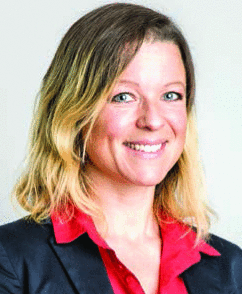Penzenstadler, Betz, Venters,
Chitchyan, Porras, Seyff, and Becker (2018) suggest under-graduate computing degree programs are failing to address social and environmental issues and inducing some cognitive dissonance would help motivate students. The authors reference my course "ICT Sustainability", where like others, where the students are already assumed to be motivated by a wish to do good for the environment. In practice I suspect some students are instead by the assumption that a course on sustainability must be easy: but they soon learn soft skills, are hard. ;-) More seriously, the authors conclude that their project-based course design fits well with sustainability topics (I agree, and this has been explored in some of the ANU TechLauncher projects). They also suggest more interaction with
the students before a summer school for preparation: however this may be difficult to achieve (my preference is for a blended approach, where the students are formally enrolled online and directed to study materials, rather than expect them to do pre-course work).
the students before a summer school for preparation: however this may be difficult to achieve (my preference is for a blended approach, where the students are formally enrolled online and directed to study materials, rather than expect them to do pre-course work).
"Sustainability has become an important concern across many disciplines, and software systems play an increasingly central role in addressing it. However, teaching students from software engineering and related disciplines to effectively act in this space requires interdisciplinary courses that combines the concept of sustainability with software engineering practice and principles. Yet, presently little guidance exist on which subjects and materials to cover in such courses and how, combined with a lack of reusable learning objects. This paper describes a summer school course on Software Engineering for Sustainability (SE4S). We provide a blueprint for this course, in the hope that it can help the community develop a shared approach and methods to teaching SE4S. Practical lessons learned from delivery of this course are also reported here, and
could help iterate over the course materials, structure, and guidance for future improvements. The course blueprint, availability of used materials and report of the study results make this course viable for replication and further improvement."From Penzenstadler, Betz, Venters, Chitchyan, Porras, Seyff, and Becker (2018)
References
Penzenstadler, B., Betz, S., Venters,
C. C., Chitchyan, R., Porras, J., Seyff, N., ... & Becker, C. (2018,
May). Everything is INTERRELATED: teaching software engineering for
sustainability. In 2018 IEEE/ACM 40th International Conference on Software Engineering: Software Engineering Education and Training (ICSE-SEET) (pp. 153-162). IEEE. URL https://pure.hud.ac.uk/ws/files/12607064/interrelated_teaching_software_final.pdf

No comments:
Post a Comment